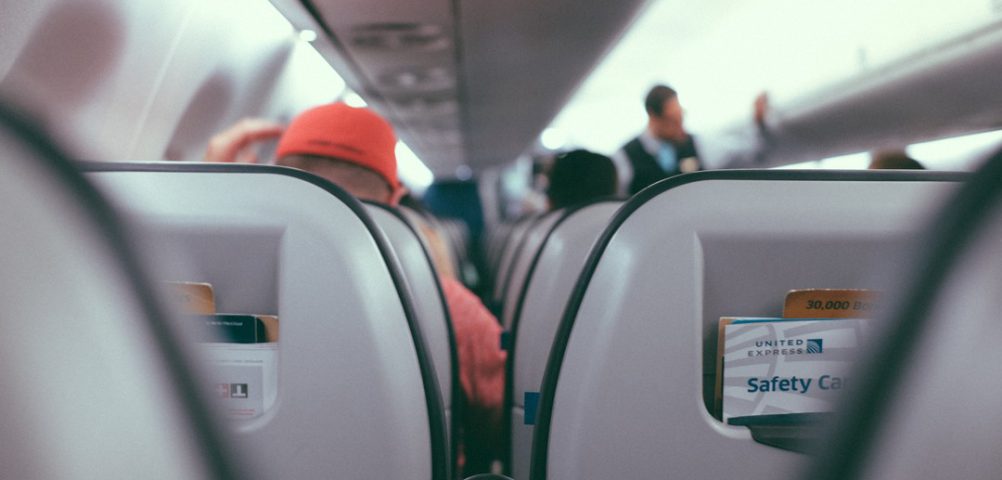Another Shocking Back Story About United Airlines
If only 13% of the world’s workers are fully engaged, there is a high probability that a wide variety of senior executives are disengaged, going through the motions and making decisions without questioning overall impact on the business. In The Workplace Engagement Solution (Career Press), I highlighted United Airlines as an employer that routinely makes human capital decisions that disengage its employees.
This past year, United Airlines was perhaps the biggest demonstration in how a disengaged employee culture can impact consumers. Almost all of us witnessed security guards dragging a semi-conscious passenger off of his flight. While the guards were not employees of the airline, the UA employees took a minor service problem and escalated it by simply not thinking through the implications of their actions – one of the very definitions of disengagement. The incident made world news, destroyed shareholder value, and affirmed the bad experiences so many of us have had with this carrier. One of my most widely read articles was about the UA “culture” when this debacle took place.
A few years ago, United Airlines made a ham-fisted mess of the merger with Continental Airlines, which had been one of the best cultures in the industry. At the time, Jeff Smisek was appointed the new CEO. He drove cost cutting and messaging in ways that repeatedly alienated employees. He cut their travel benefits, one of the very reasons many workers settle for the overall pay. He even issued memos that the company would no longer provide coffee cups to the employees. In other words, they could bring cups from home. The cost cutting extended to passengers when planes had to make emergency landings to pick up toilet paper.
The impact of employee disengagement on passengers is legendary. But, did you know this?
- Unhappy flight attendants routinely ask the pilots to turn up the heat in the cabin. Why? If passengers are knocked out they have less work passing out drinks and selling Tapas boxes. The next time you think you are coming down with the flu, ask them to turn down the heat.
- Pilots have lost virtually every financial incentive to do their best. Now, many purposely slow down flights to get bumped into overtime. If they make a plane a half-hour late that equates to about $70.00. If 200 passengers are on board and their average income is $30/hour the collective loss is $3,000. The most cynical pilots have figured out how to time a flight so that it arrives as late as possible without getting cited. The angriest purposely burn more fuel.
Last year, the stunning images of physician being dragged off of a plane was but one in a series of high-profile PR nightmares. Shortly before that event, Jeff Smisek was removed from office, not because of cost cutting but because he was being pursued by the federal government for a growing corruption scandel. The company appointed the existing CFO, Oscar Munoz into the post. It took days for Mr. Munoz to issue an apology for the dragging incident. The blowback was so fierce that he said he was making visits to employees to hear about their challenges and morale issues.
In an interview, Mr. Munoz talked of traveling around the country to listen to employees and start improving the morale of the workers. He recounted the anger from employees talking about Mr. Smisek’s removal of coffee cups and going downhill from there. After these gestures, what did the company do to turn around morale?
Fasten your seatbelts, it is a rough ride. This past week, United Airline’s President Scott Kirby sent out a memo to all employees indicating the company is removing the quarterly performance bonuses and replacing that income with a “lottery.” In other words, no matter how hard someone works, compensation is now in the hands of chance. For flight attendants who average $38,000 per year, the performance bonus of about $1,200 was a big deal. New pilots are in a similar jam making around $46,000. Many new pilots are assigned to hubs that are far from their home. They often rent apartments filled with a dozen bunks just to get by.
Many senior executives view the airline industry as a commodity. And, commodities, in this country, don’t measure success from customer satisfaction. They embrace a cynical view that the customer will put up with a lot of irritation to get the cheapest ticket, the lowest price at the grocery store, or from the cable company that monopolizes a region. In other words, everyone gets mistreated.
I travel quite a bit. The last time we were on a United Airlines flight was from Los Angeles to London. The plane was virtually empty. We were about an hour away from Heathrow and I felt it reasonable to ask for a cup of coffee. So, I pressed the flight attendant button. After about ten minutes, the attendant stomped over to our seats, reached over my partner’s shoulder cancelled the button and turned away. I walked back to the galley to get my own cup of coffee only to see the same attendant down a handful of pills with a swig of the desired coffee.
United Airlines is a big player in our economy. But, I have not been on one of their flights in four years. Until they treat their employees with some kind of dignity and fairness, getting on one of their planes represents as much dependability as…a lottery ticket.
They deserve better.
We deserve better.
The employer brand is now more important than the consumer brand. Consumer brands give us a promise. Employer brands become the truth.
Brought to you by David Harder, President – Inspired Work, Inc.
Schedule 15-Minutes to Discuss Your Workplace or Career with David (Here)
(C) Copyright, Inspired Work, Inc. – 2018 (All rights reserved)

